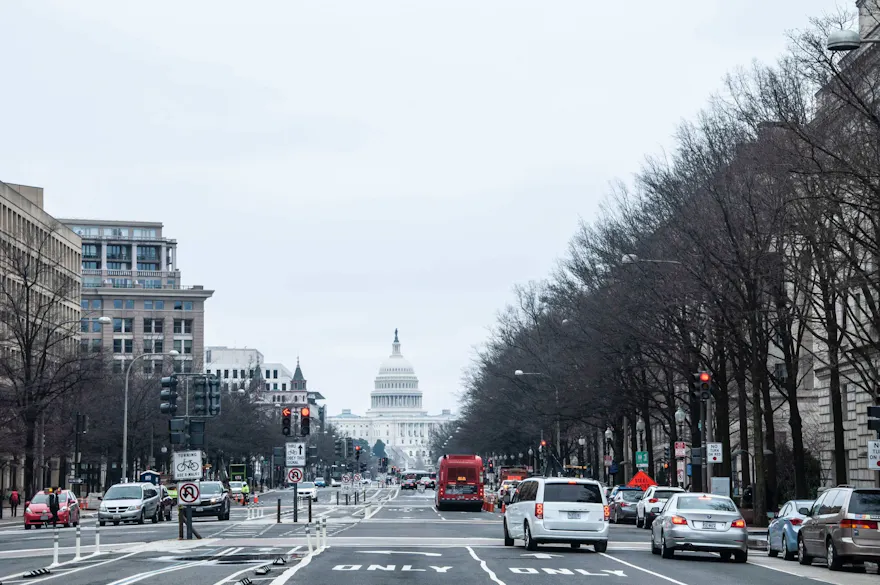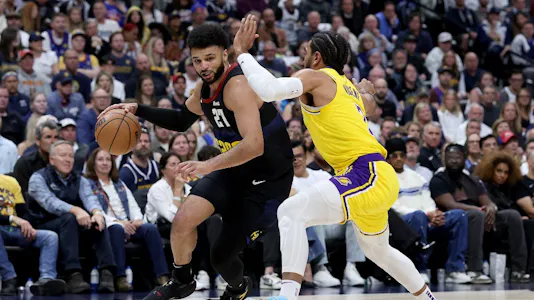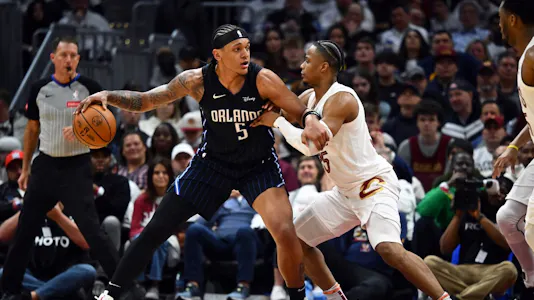It's Apples and Oranges in the DC Legal Sports Betting Scene

The legal sports betting scene in Washington DC has been a battle since launch. The latest example of the dysfunction came along with the release of the August betting numbers which showed their only retail betting outlet far outpacing their only mobile betting site with regards to the gambling dollars they took in.
William Hill, the only retail betting operation in DC took in $9.1 million worth of bets for the month of August. As for GamBet DC, the only mobile betting site in the jurisdiction only took in $2.1 million worth of bets. This despite William Hill's platform only being available through sports betting kiosks located in Capital One Arena, while GamBet DC being available everywhere within the District’s state lines.
Opposite of Other States
It is a well-known fact within the legal US sports betting scene that mobile betting is the present and the future of the industry. The most successful bet-friendly states in the US consistently report over 85% of their monthly hauls coming from internet-based bets.
Already, states like Indiana, Pennsylvania, and New Jersey have released their August figures, and they show that mobile betting was responsible for around 88% of their handles for the month. Contrast that with Washington DC, where William Hill and their retail-only platform made up 86% of the betting total for August – mobile being was responsible for only 14%.
More Eye-Opening Numbers
Need more proof that GamBet DC is failing to make an adequate dent in the Washington DC market? Look no further than their totals since their May 28 launch. GamBet DC has taken in a grand total of $3.1 million in the 3+ months of operation, resulting in $457,166 in revenue and about $263,000 in taxes for Washington DC coffers.
In just one month, William Hill's retail operation recorded $9.1 million in bets, leading to $1.4 million in revenue and about $140,000 in tax revenue for the state.
Underwhelming GamBet
Sure COVID-19 could be cited as one of the reasons the sports betting app in DC has failed. There has certainly been a lack of bankable sports, a lack of expendable income for some and a lack of DC-area sports teams doing well in the sports that have been up-and-running.
But most are pointing the blame for the anemic mobile sports betting numbers from Intralot and GamBet DC. Intralot has already had their share of issues with launches in both Montana and Oregon, so it should come as no surprise that the Company is having trouble in DC.
“The app has been underwhelming, to be quite blunt,” said Sara Slane, a D.C.-based gambling industry consultant and former spokeswoman for the American Gaming Association. “What you have to do is have a really competitive .?.?. model in place that allows operators to compete with offshore.”
The Price of Business
Most analysts have pointed to Intralot (which was the controversial original sole-provider of legal betting in DC) and GamBet's prices as the major problem with their lack of success in Washington DC. Less-attractive odds aren't a new problem for Intralot and still persist today in the Montana and Oregon markets.
The GamBet Moneyline odds, provided by Intralot were clashing with many other competing US sportsbooks and offshore offerings - their odds for most events were actually worse for both sides.
By having uncompetitive odds, it simply means that bettors aren't able to keep as much of their winnings. Thus, the willingness of DC gamblers driving to a kiosk or to hit up an offshore book instead of using their home-grown mobile app.
A Solution
Hopes in Washington DC were that the legal sports betting platform could generate $17 million per year in taxes. The industry is a long way from that and clearly isn’t set up to come close the way it exists right now.
It looks as though more competition in the DC market is the only way to prop up the overall betting handles. William Hill has shown, through its retail-only model that the market could be strong in the Nation’s Capital but that won’t happen unless Intralot can somehow boost the mobile take.







